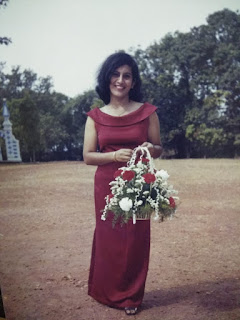A timid
smile on meeting someone for the first time, words exchanged while waiting for
a movie to begin, the possibility of a new relationship while chatting over
tea, and the affirmation of being who one wants to be in the company of others.
Moments like these marked the Rainbow Film Festival in Hyderabad organized by
the US Consulate and Wajood. It was a wonderfully quiet and well spent evening,
watching films that reflected the actual struggles and tumult of living a
wholesome life. Among the audience, they were a shared bond of understanding
and compassion as most of them came to witness a cinema which spoke directly to
the audience there, who were either lesbian, gay, bisexual, transgender, or who
had LGBT family members or friends or merely those who were curious and came
with an open mind. It is during these congregations that we make inroads by
widening the horizons of our tolerance and acceptance to include those who did
not fit in previously.
And yet,
one might ask, why would someone feel threatened and want to thwart such
attempts. Why does one feel violated against, when a group of people wants to
gather together to watch films? That’s exactly what happened a few hours prior
to the event. Annapurna Studios was threatened not to screen these films as it
would provoke violence. An MP from a minority community gave a hate speech on
the Urdu news, claiming that it violated Islamic and Hyderabadi tradition. Such
eventualities only tend to excite unwanted fear, anger and insecurity. It made
people feel that some of them are not part of this society, worse still, that
they are not human or Indian enough to even watch films collectively. In fact,
the studio suggested that the screening be hosted at another venue as it had
high stakes involved,
keeping the organizers on tenterhooks. Finally through the assurance of protection on the
behest of the US Consulate, the event did take place peacefully.
We’ve
often heard some people voice out that homosexuality is a western import. And I
often smile at their ignorance. Men had intimate relations with men and women
had intimate relations with women through all ages, in all societies and, of
course, in India too! Even in our literary tradition be it the ancient Indian
texts, such as Vyasa’s Mahabharata to medieval material in the Sanskrit and Perso-Urdu tradition, we have several instances of same sex love. (One could
always refer to Ruth Vanita’s and Saleem Kidwai’s Same-Sex Love in India.)
Homosexuals are everywhere. And they haven’t come from the west. And we have
them in all shapes, sizes, classes, castes and religions. (Yes, honourable MP,
Muslims included.) Historically and, ipso facto, traditionally, Hyderabad has
always been extremely tolerant towards diversity of sexualities. No community
or religious leader should restrict or destroy the conditions of living a
meaningful life for others, by prescribing for all lives what is only liveable
by only a few.
 |
| Rainbow Film Festival |
It is a
very sorry state of affairs that our own government has not taken a clear stand
on homosexuality in India. It’s dismal that in Hyderabad, where there are so
many of us, we have few allies. The US Consulate is one among them. It did not
take a Hillary Clinton to tell us that gay rights are human rights on
International Human Rights Day, for we knew that much before. Yet, the fact
that she proclaimed it only brought to light how much still needs to be done
for the LGBTs all over the world. The act of a consulate endorsing the arts and
fostering the rights of a community goes a long way in creating spaces of love.
Above all, in this case, the US Consulate’s intervention is also a political
act as it calls attention for the need to act and support the LGBTs among us
who are still in a state of limbo in the eyes of the Indian Law. I am sure, in
time, we will have more allies, a greater number of people who have the
openness and understanding to regard all people in society as equal.
